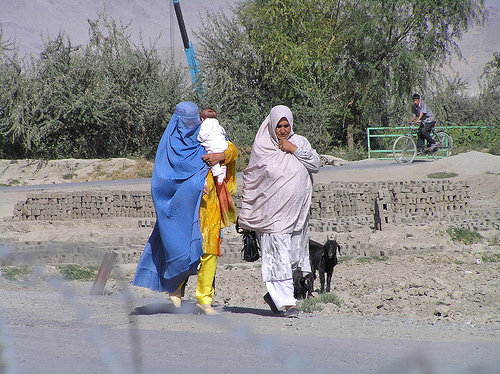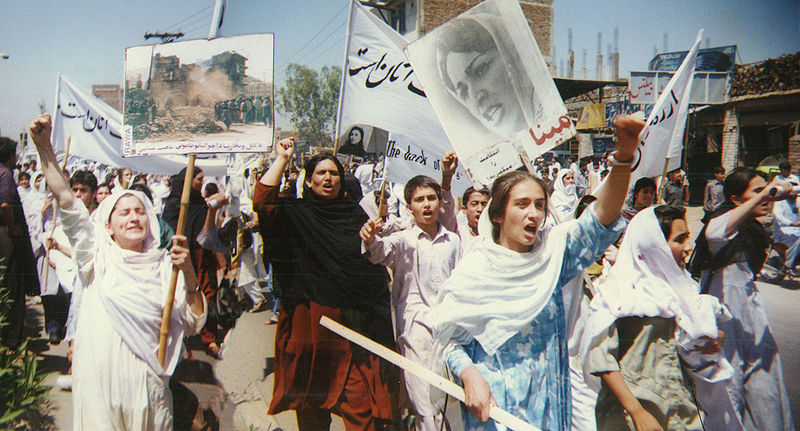Struggling for women’s rights across Asia

The rights of women are one aspect of our world that has undergone a change for the better over the course of the last few centuries. The teachings of religious dogma and the entrenchment of patriarchal governmental structures have been the chief enemies, but one by one the people of the world are making it known that they desire change. A more modern society means more humanistic views, which in turn means treating women with the same respect that men have historically demanded. This is not to say that the state of women’s rights is perfect by any means, but some places are distinctively better than others. This contrast becomes obvious when one looks at the state of affairs in many parts of
When the Taliban ruled the country of
Though the government moved into the hands of more forward-thinking individuals, there are still many religious conservatives holding the reigns of power in this primarily Muslim country. A law was put into place in 2009 by the current president of
In order to prevent this, a call for parliament to review the decree and establish it as a proper law was made. But those in parliament decided that they did not share the same views as the president and pushed it into limbo once more. Some of the points that came into question and were not agreeable to all members of parliament include the set legal marriage age of 16 for women, the establishment of domestic abuse shelters (which one individual claimed were morally corrupt and filled with prostitutes and immoral women), the limitation of the number of wives to two, the criminalization of domestic violence, the criminalization of buying and selling women and the protection of women from being prosecuted for adultery when raped.
Thankfully, pushing the decree aside means that it’s still in effect, but the danger of it being shut down by some ultra-conservative faction within the government still exists. And though many see the question of women’s rights as primarily a humanistic one, it seems to me that even the religious side of the debate would see the practical advantage and logic in giving women as much power as possible.
To put out the argument in a pragmatic way, women are, as has been proved time and time again, a great source of creativity and intellectual thought. Allowing women to have as many rights as men is not only morally correct, but incredibly progressive to a society as a whole. The old ideals of religion must be broken down for the transition to work, but the end result is a country that thinks more, produces more and demands more respect on the world stage.
It always amazes me that people in a position of power would think so short-sightedly as to demand that things in their life never change, even if it means risking the future of their country. What stops them is the fear - fear of not being able to control women when they see the need to, fear that women will try to change things to balance society and thus steal away power and influence from men, and fear that women will have the ability to retaliate legally against men should those men fail to maintain proper control of themselves.

Luckily, it’s not all doom and gloom for women’s rights in
So not all is bad. Women’s rights are an inevitable part of our changing world, a world where everyone is needed and all freedoms are becoming important. It is only natural that antiquated views such as sexism and racism fall by the wayside as we make progress as a species. Some may fight the change, but every year there are less and less of those people. To fight against social evolution is as futile as trying to defy gravity by jumping into the air over and over. Now if only we could get the ignorant of our world to learn this lesson a bit quicker, we could get on with improving the human race.
Afghanistan Women photo courtesy of Afghanistan Matters via Wikicommons
Anti-Taliban protest photo courtesy of RAWA via Wikicommons

0 comments